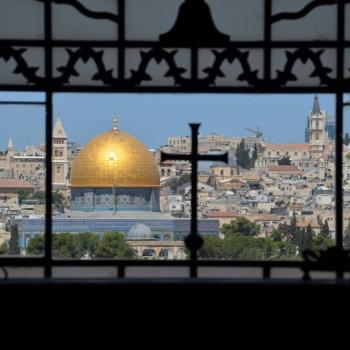We’re up to Day Eleven of Ramadan, and I’m trying to type quietly as my husband naps next to me. Mashallah, he is doing well so far. If he plays his cards right, there might be some qatayf in his future (a food you’ll read about below, and want to try immediately).
I’m sure he misses his parents more during this month than the rest of the year – especially his mom, the most incredible cook!
I enjoy cooking special meals for him, but I don’t spend the whole day in the kitchen like she did. When it was time for iftar, she would present so much delicious food, and we’d stuff ourselves – then she’d bring out the desserts! (I did not fast with them, so I would sneak a snack during the day in addition to iftar.)
 The classic dessert is qatayf (pronounced roughly as guh-TYF – there are several alternate spellings), and when properly made, it is to die for. We’ve been making them ourselves for years, and, as with samboosek, you can fill them with anything you like. The classic fillings are nuts and, feta cheese (gross), and cream.
The classic dessert is qatayf (pronounced roughly as guh-TYF – there are several alternate spellings), and when properly made, it is to die for. We’ve been making them ourselves for years, and, as with samboosek, you can fill them with anything you like. The classic fillings are nuts and, feta cheese (gross), and cream.
Qatayf basically starts with an un-flipped pancake; a blob of filling is added, and the edges are pinched. Then it’s deep-fried (my mouth is watering just writing about it!) and then plunged into sweet syrup (I know, right???), and left to cool.
Years ago, when we lived in Illinois, and Ramadan fell in winter (Islam runs on a lunar calendar, so it arrives 11 days earlier every year), we used to make the syrup on the stove, then put it out in a snowbank to cool. Good times!
I’m going to try some new fillings this year – I’ll tell you about them afterwards, cuz my hubby usually reads my blog, and I want to surprise him! (Here is a recipe for qatayf that includes some of the classic fillings.)
It doesn’t take a rocket scientist to determine that, even with 16 hours of fasting, it’s easy to gain weight during Ramadan, especially when there’s a good cook in the house (preferably a full-time homemaker). You eat iftar (fast-breaking meal) because you’re starving, and everything looks delicious; a few hours later you eat suhoor (last meal before fast starts again) because you know you’re about to fast again, and you don’t want to die of malnutrition during the day. Voila! An extra five pounds easily in a month.
While I always enjoyed the great food and special rituals of Ramadan, a part of me looked critically at the whole thing: you’re supposed to learn to empathize with the poor by fasting. Well, how can you do that if you know there’s a giant feast waiting for you at the end of every day? This is a fair question, I think.
Some Muslims I know make an effort throughout the month to avoid extreme feasting. They try to stay with the true spirit of Ramadan. Of all the Muslims I know, only a handful do this. But before you get judgy like I did, I have a one-word exhortation: think about Christmas.
Much as we think of it as a celebration of Jesus’ birth in Bethlehem, the vast majority of us get very caught up in shopping for gifts, going to parties, decorating, and whatnot. (Someday, I’ll tell you about my adventure trying to find a black-market Christmas tree in Saudi Arabia! Subscribe to my newsletter so you won’t miss it.)
The punchline here is, even if you think Islam is weird and foreign, the fact that it is practiced by fellow human beings guarantees that we have much in common. We can all become captivated by a luscious dessert, we can get so busy enjoying our prosperity that we forget the poor among us. We may sincerely love God and want to be righteous, but our flesh has other ideas.
Inshallah, we’ll all improve over time. Yalla, keep trying!
YOU MIGHT ENJOY READING THESE POSTS:
Ramadan for Christians: a story of smuggling (a Saudi Arabia adventure)
Paradigm shift: the Parable of the Diaper (a mother-in-law story)
Do you know God’s will for you, or just assume you know? (wisdom and intentionality)













